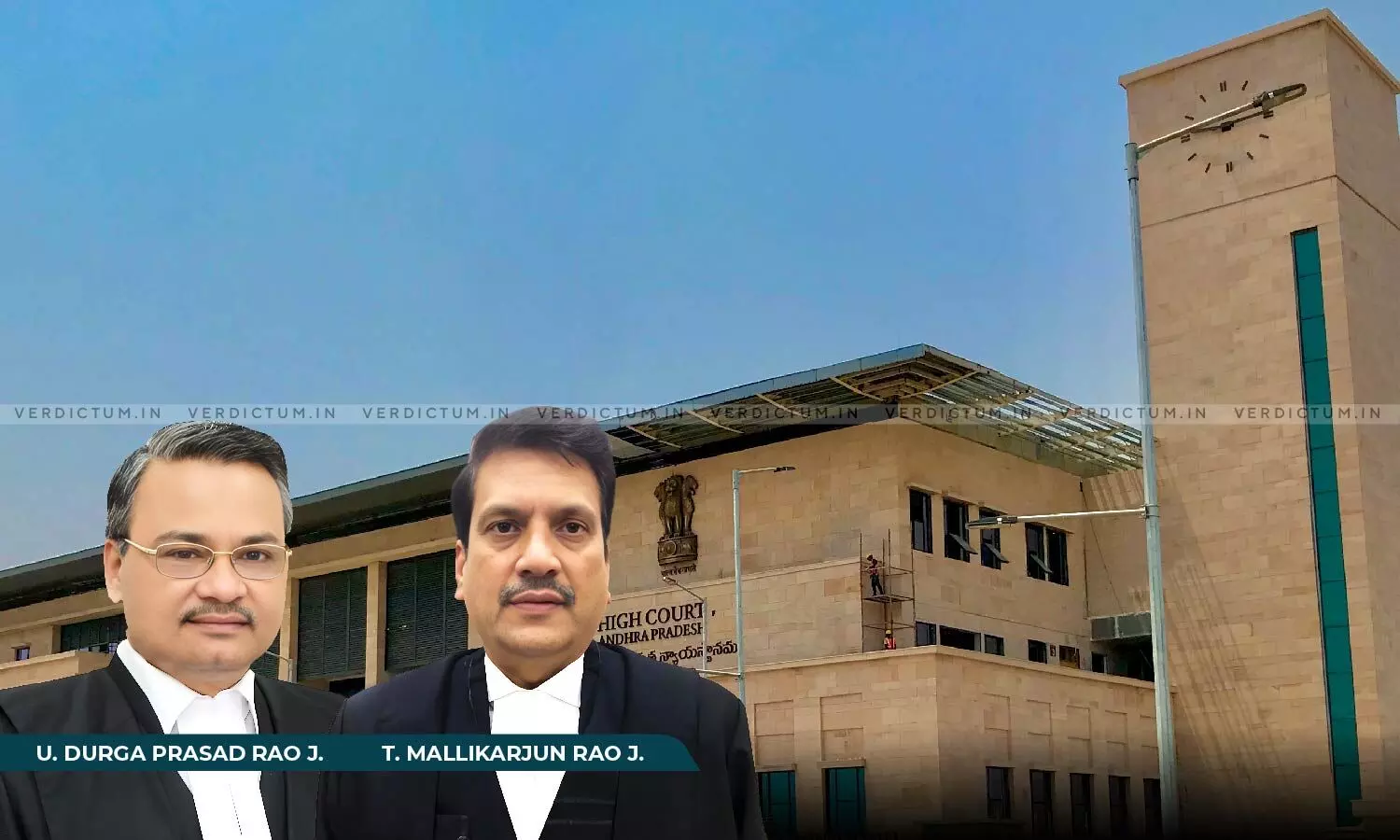
Time Limit For Claiming IT Credit U/s. 16(4) APGST Act Does Not Violate Articles 14, 19(1)(g) & 300A: Andhra Pradesh HC
 |
|The Andhra Pradesh High Court has recently ruled that the time limit prescribed for claiming Input Tax Credit (ITC) under Section 16(4) of the Andhra Pradesh Goods and Services Tax Act (APGST) and Central Goods and Services Tax Act (CGST Act) does not violate Articles 14, 19(1)(g), and 300-A of the Constitution.
Further, stating that Section 16(2) of the APGST/CGST Act, which contains a non-obstante clause, does not override Section 16(4) of the Act, as both provisions serve different purposes and do not contradict each other, the Division Bench of Justice U. Durga Prasad Rao and Justice T. Mallikarjuna Rao observed that mere acceptance of Form GSTR-3B returns with late fee will not exonerate the delay in claiming ITC beyond the period specified u/s 16(4) of APGST/CGST Act, 2017.
Advocate Rama Krishna Kumar Potturi appeared for the Petitioner, whereas Advocate General appeared for the Respondent.
The brief issue involved in the present case was that the petitioner had sought a writ of mandamus to declare Section 16(4) of the APGST Act, 2017, and Section 16(4) of the CGST Act as violative of Article 14, 19(1)(g), and Section 300-A of the Constitution of India. The petitioner argued that the non-obstante clause in Section 16(2) of the APGST/CGST Act should prevail over Section 16(4). Additionally, the petitioner challenged a notification issued by the Government of Andhra Pradesh, providing an extension of time for filing returns only to non-resident taxpayers during the COVID-19 pandemic, alleging that it was arbitrary and violated Article 14.
After considering the submission and examining Section 16 of the APGST Act, which lays down the eligibility and conditions for a GST assessee to claim ITC on supplies of goods or services used or intended to be used in the course of furtherance of their business, the Bench observed that while Section 16(2) establishes the eligibility criteria necessary for claiming ITC, subsections (3) and (4) impose additional conditions or limitations for claiming ITC.
In essence, the Bench clarified that even if an assessee meets the basic eligibility criteria under Section 16(2), they may still not be entitled to claim ITC if their case falls within the limitations specified in subsections (3) and (4).
The Bench went on to clarify that a non-obstante clause was a legislative device commonly used to give overriding effect to certain provisions over other potentially contradictory provisions in the same statute or different statutes.
The court's task is to ascertain the extent to which the legislature intended to give the enacting part of the provision, succeeding the non-obstante clause, precedence over the rest of the provisions, added the Bench.
Stating that both Section 16(2) and Section 16(4) serve as different restricting provisions, the High Court remarked that while Section 16(2) prescribes eligibility conditions, Section 16(4) imposes a time limit for claiming ITC.
Since these provisions do not contradict each other and serve distinct purposes, Section 16(4) is not overridden by the non-obstante clause in Section 16(2), added the Court.
Regarding the petitioner's argument on the notification issued during the pandemic, the High Court held that ITC is a concession, rebate, or benefit provided by the government and not a statutory or constitutional right.
Therefore, the government has the discretion to impose reasonable conditions, including time limitations, for availing such benefits, added the Court.
In conclusion, the High Court held that the time limit prescribed under Section 16(4) of the APGST Act/CGST Act for claiming ITC is valid and not in violation of constitutional provisions and Section 16(2) does not override Section 16(4), and both provisions will operate independently.
Cause Title: Thirumalakonda Plywoods v. Assistant Commissioner – State Tax
Click here to read/download the Judgment